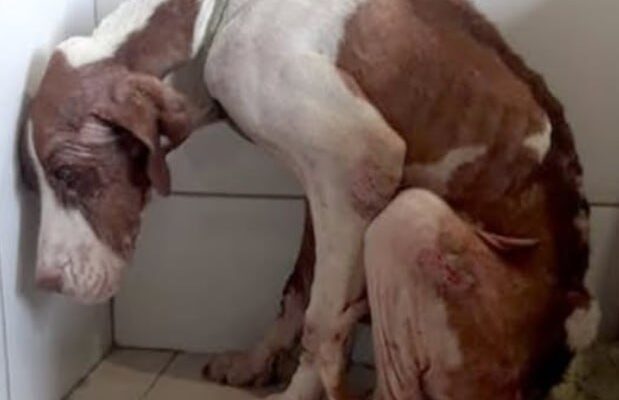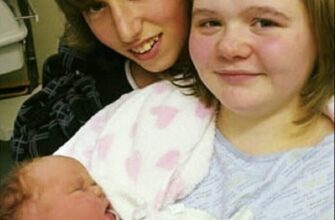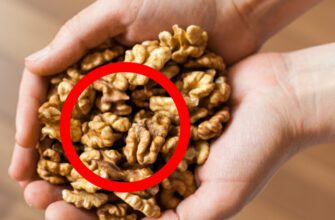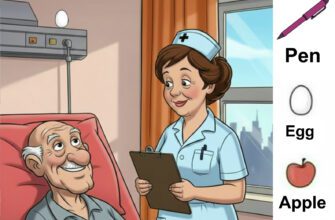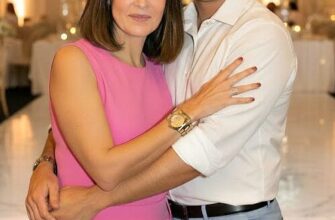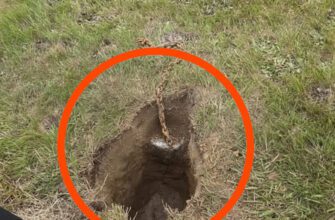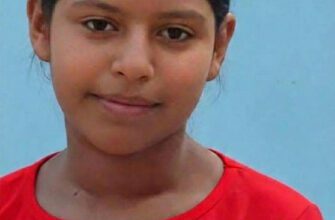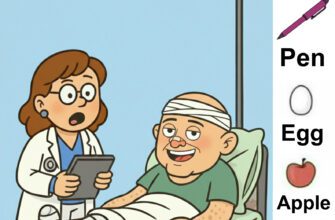…we didn’t call a taxi; we called a driver we knew who always took animals, and he said he would be there in twenty minutes, and we just had to lay the dog down so that it wouldn’t hurt. While we were waiting, I sat on the floor, leaning against the wall, and whispered very simple, almost childish words, as one whispers to no one: “You know, there’s a window behind the door, I have some grass in a jar on the windowsill, it smells of bread and warm dishes, and no one will put you in the corner, I swear, no one.” I said this not so much to him as to myself, because in every promise we make to animals there is always a sound of our own fear – will we have enough strength to fulfill it?
He lay there and didn’t move, only occasionally exhaling heavily, and then a round trace of steam remained near the wall, quickly disappearing. When the driver entered, the dog did not even raise his head,

and we carefully put a sheet under him and the three of us carried him to the car, and all this time it seemed to me that I was carrying not a living creature, but silence, with all its weight accumulated over months when no one said: «Stop, you can’t do this.» The clinic smelled of medicine and buckwheat — the nurse was heating up her dinner on a small stove, and this smell suddenly became so homely that I wanted to cry. The doctor, a woman of about forty, sat down next to the dog, ran her hand along the spine, which stuck out from the skin like iron lightning, and quietly said: «We will collect.» She explained that he was severely exhausted, dehydrated, iron deficiency, ulcers from lying down, inflamed skin, and that the good news was that his heart was beating evenly, his eyes were clear, the tests would probably give a chance. I nodded, and one sound stubbornly hummed in my head: chance, chance, chance.
The first day he barely moved. We changed diapers, the IVs slowly measured out transparent patience, the doctor asked not to feed him so as not to harm him, and only water with electrolytes touched his lips, and he drank, as if he remembered how to do it. That night I stayed in the clinic — I sat on a stool, sometimes dozed off, woke up from my own short, shameful sleep, and each time, opening my eyes, I saw that the dog was lying in the same way, with his forehead to the wall, as if even here there was no other horizon for him.
Towards morning he turned his head for the first time. Just a little, the thickness of a palm, but this movement was enough to send shivers down my spine, and I realized that I had no right to rush him. He needs not only to return his body, he needs to return the world to the part where he once broke. We named him Tisha — not because he is quiet, but because silence had become his only refuge, and now it was to become a bridge back to life.
On the second day, he tried to get up, and his paws spread out like a skier’s; he again ran into the wall, breathing heavily, and at that moment I heard a shrill phrase from the corridor: «Yes, such people should be put to sleep, why torture them?» — and something inside me snapped so abruptly that I went out into the corridor and very calmly, almost politely, asked him never to say such words in front of him again. The woman was surprised, shrugged her shoulders, as if she did not understand what the crime was, and left, and I returned to the ward and simply sat down next to him, because sometimes the only thing we can do is be close and not say those words that make the walls become even closer.
We were discharged four days later. The doctor prescribed spoon feeding, a schedule of ointments and pills, taught us how to cover wounds, how to prevent hypothermia, and specifically said: “Don’t be afraid of his fear. It will go away slowly, but it is going away.” We arrived home, and the kitchen, where it was usually cozy, suddenly seemed too big, too loud; the clock was ticking, the kettle was noisy, and Tisha again huddled in the corner between the refrigerator and the cabinet, sat down, like in the photo from the clinic, pressed his face against the wall and froze.
I lay on the floor and also looked at the wall; I had to admit that each of us has our own little corner, where we stand when we can’t cope. I told him about the yard where the neighbors grilled, about the girl from the third entrance who brought treats to all the dogs, about the old guard who knew the names of all the local homeless cats, and the more I told him, the more clearly I heard how quietly someone’s water flowed from the other side of the wall, how they laughed at a TV series in the neighboring apartment, how bread crunched under a knife, and I wanted to reach out to this ordinary life, to pull it closer so that it would warm us both.
The first turning point happened on the fourth evening, when the smell of rain and wet leaves crept into the room through the slightly open window, and somewhere below the door of a baby carriage slammed, and someone called in a hoarse voice: «Red, come home!» Tisha shuddered, lifted his forehead from the wall and, without turning around, sniffed the air, sucked it in deeply, as if drinking the scent, and then very slowly turned his head, and I saw how a confused spark of curiosity flared in his eyes for the first time. I held out my hand — not to him, but to the air between us — and he moved a centimeter closer. A centimeter — and a lifetime.
We went for a walk only a week later: short circles around the house, cautious steps, fear of every open space. He chose the route himself — along the walls, along the fences, along the long gray facades, where you could stay at a distance of an extended nose from safety. When we approached the playground, Tisha would press himself against the bench and sit there until a boy in a blue jacket threw him a small piece of cheese, and then Tisha, trembling all over, would stretch out his neck and take the soft gift that smelled like children’s hands, and would look away — not from fear, but from the impossibility of accepting simple kindness without reservations.
The fur began to shine little by little, the wounds were healing, fluff appeared on his cheeks, and along with the flesh, habits returned that he seemed to have never had: in the morning he would go to the window and watch the janitor sweep up wet leaves; during the day he would wedge the ball that I had bought «for growth» and which was still beyond his strength; in the evening he would settle down at my feet, and if I typed on the laptop for a long time, he would quietly cough, demanding that I put my hand on his neck. But as soon as someone slammed the door or turned on the loudspeaker, he would turn into that photo from the clinic again — a corner, tiles, forehead, silence. And each time we would start over, and each time he would come out of his corner a little faster.
Two months later, we were invited to a free photo shoot by volunteers — they were doing «before and after» for the base, so that Tisha could find a home. I hesitated; my heart was stupid and selfish, it wanted to keep him for itself, and at the same time it knew that true love is when you are ready to give in if it is better for the one you love. We came to the studio, Tisha, as always, first found a wall and sat down by it, but then the photographer, a short guy, suddenly sat down next to him too, with his shoulder to the tiles, and said: «I also once loved walls, they hold.» The dog looked at him carefully, then at me, then at him again, and — for the first time — took a step away from the corner, into the center of the room, where there was no wall close, and sat down calmly. The photographer did not press the button right away; he waited for that split second when Tisha’s gaze stopped searching for the saving white square, and only then clicked the shutter.
This photo flew around the city’s animal groups. People wrote to us, asked questions, told us how their childhood punishments «stand in the corner» strangely responded with sudden tenderness for an unfamiliar dog; someone offered money for food, someone brought toys to the entrance, someone simply wrote: «Hang in there, you’re doing well.» But one response was special: a letter from a woman named Natalia, an elementary school teacher who lost her husband, and then her house on the outskirts, moved into a small rented apartment, but still dreamed of getting a dog, because without a dog, she said, her home is not a home.
We met several times; Natalya came to us, sat on the floor next to Tisha, did not try to stroke, just sat; she read stories out loud, not to me and not to him, but into the space where there was always room for a third person. At first, Tisha hid behind a chair, but by the end of the third meeting he settled down at her feet and, when she paused between paragraphs, suddenly laid his head on her knees. She looked up, and there were tears in them — not loud, not heavy, but those that appear when something falls into place. I signed the transfer agreement, my hand was shaking slightly, and this was not because of doubt — rather because of the greatness of the moment when you release your forehead from your «wall». We walked them to the door, Natalya pressed Tisha’s head to herself, whispered: «Home, baby», and he obediently went, without looking back. And this “without looking back” was the best compliment he could have given me.
A week later, she sent me a video. It shows a kitchen similar to mine, only the window is wider, there are jars of dill and green onions on the windowsill, and right in the center of the kitchen, on a warm rug, lies Tisha — not next to the wall, not in the corner, but where life goes back and forth without asking permission. Natalya says off-screen: “Look, today he himself lay down in the middle, and nothing, no one is bothering him.” At the end of the video, rain hits the window, thunder rumbles, Tisha throws up her head — and instead of rushing to the wall, she just looks at her mistress and slowly, very consciously, puts her muzzle on her foot. And I understand that the circle has closed — not the one of doors and mistakes, but the one of loyalty and return.
Now, when I walk past those white tiles in the clinic, I no longer feel like the walls are our enemies. Walls are there to hold up the roof, to hang photographs on, to push off from when you learn to walk. But no wall should be a corner of punishment. Not one. And every time I see a dog on the street who is afraid of open spaces and looks at the ground as if there is the only answer, I remember Tisha, his first centimeter from the wall, his choice to lie down in the center of the kitchen, and I repeat to myself like a prayer, like a promise, like a rule for adults that cannot be abandoned: no one will ever be put in a corner again for simply existing.
And perhaps this is the whole point of saving him, this is the point of any help — not to show how strong we are, but to raise the gaze of someone who is used to looking at the tiles and show him the window. Because there is always life outside the window, in full measure, without discounts, warm, smelling of bread and grass, and everyone who has ever torn their forehead away from the cold wall has the right to see it.
And if you are ever met in the basement, on the stairs, in someone else’s kitchen by a thin, frightened soul, crouched with her face to the corner, do not shout, do not pull sharply, do not say scary words; sit down next to her, shoulder to the tiles, and tell her about your windows. Sometimes this is how the road begins — with someone’s quiet story, told in the presence of two walls.
➕
